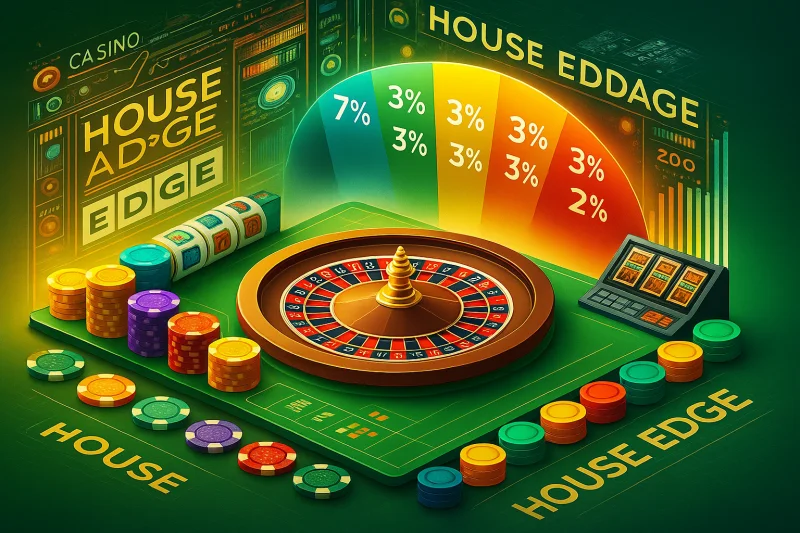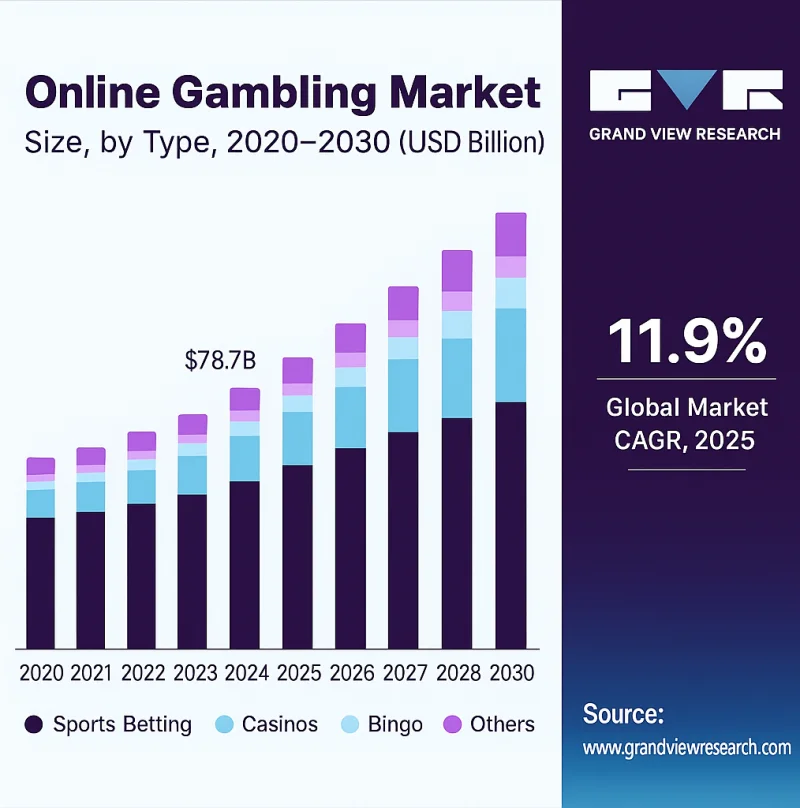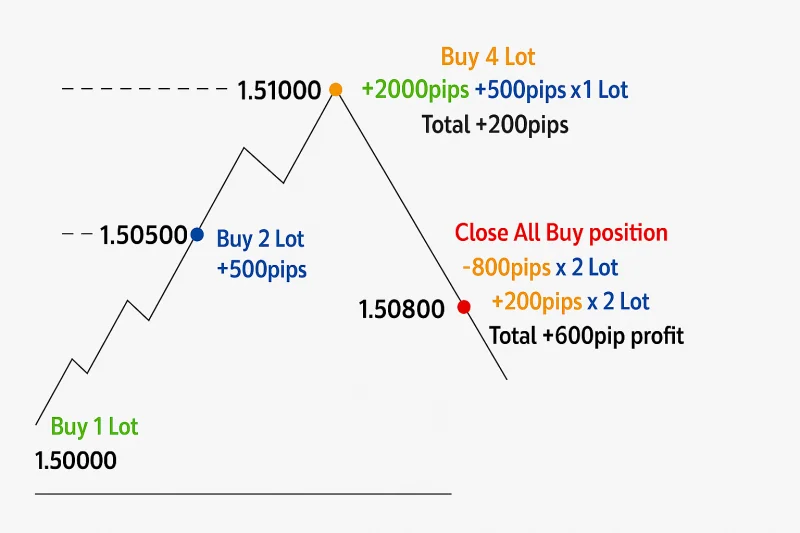How Casinos Make Money (and How You Can Lose Less of Yours)

It’s no secret that casinos are not just there to entertain you, nor are they interested in letting you get the upper hand. They orient the casinos around getting you to risk as much money as possible under circumstances in which they have the upper hand most of the time. While any player absolutely can win on a big day out, they still lose a slight majority of the time. For that reason it’s important to view gambling as entertainment, not an income opportunity.
That said, there is a difference between the different verticals and specific types of table or other games played, which feature different probabilities of winning. There are also particular strategies players can employ that help them mitigate the risk they’re taking on. We’re going to be taking you through all of that today.
Casino revenue 101
Casinos have everything built down to a science and since most of the games played operate based on a software, they can predict their winnings per player down to a near pinpoint precision as Iptogel. This applies to both in-person and online casino games. This slight advantage that the casino has is called the house edge. So this is a built-in mathematical advantage that every casino game gives to the house.
It represents the average profit the casino expects to make from each bet over the long run. For example, in American roulette, the house edge is about 5.26%, meaning for every $100 bet, the casino expects to make $5.26 over time. Blackjack, when played with basic strategy, can have a house edge as low as 0.5%, but that still adds up the longer you play.
It’s important to remember: the house edge doesn’t mean you lose every time. It means that if you play long enough, your losses will gradually approach the average defined by that edge. That’s why the longer you stay at the tables or keep feeding a slot machine, the more likely you are to lose.
Here is a table of the typical advantages the house has in different genres of games:
| Game Type | Typical House Edge Range | Notes |
| Blackjack | 0.5% – 2% | With basic strategy; varies by rules |
| Baccarat | 1.06% – 1.24% | Banker bet has the lowest house edge |
| Craps | 0.85% – 16.67% | Pass line bets have low edge; some bets are very high edge |
| Roulette | 2.7% (European) – 5.26% (American) | European wheel has single zero; American has double zero |
| Slots | 5% – 15% | Varies widely by machine and casino |
| Video Poker | 0.5% – 5% | Depends on variant and paytable |
| Keno | 20% – 35% | One of the highest house edges |
| Poker (Casino) | 1% – 5% | Casino takes rake or fee; player skill impacts outcome |
Casinos have much more predictable profits than sportsbooks. Those by comparison typically take a fee for each bet placed and are required to accurately set scores, spreads, and moneylines so that people become interested in placing bets in favor of both teams. The profit margins are much more modest for that reason and plenty of some bettors even get the better of sportsbooks over the long haul. This is despite that in US sports betting rivals casinos, due to the much greater government permissiveness toward sports betting.

Robust player strategies
As you can see above, blackjack gives you the best odds of winning. However, there is a drawback to safer bets – the games that offer the biggest wins are also the ones with the highest house edge. So which one you choose to play will depend on your priorities in gambling. On top of that, casinos have added in some exciting new features, such as side bets, bonus rounds, and loot boxes inspired by video games. These bets offer some of the worst chances for gamblers, and should be avoided. But many people can’t resist but take them due to fear of missing out.
Here are some additional wise for limiting your losses:
- Skill games: slot games and crash games are essentially based on luck alone while table games tend to be much more based on skill. If you are playing poker as a novice, best refrain from betting significant money if you’re dealing with experienced people. Being in the opposite situation could be quite lucrative if you take the time to get especially good at it.
- Set strict limits: Before you start playing, decide how much money and time you are willing to spend — and stick to it. Set a budget for losses and a target for winnings, and walk away once you hit either limit. This is easier said than done, but discipline is key. Many players lose more because they keep chasing losses or keep playing to “win it back.” Setting firm loss and time limits protects your wallet and your enjoyment.
- Bet small: doing so can help extend your playing time, which is especially good if you are there more for the entertainment than to win bit
- Use comps smartly: don’t let the promise of rewards like free meals, drinks, and hotel stays make you gamble more than you can afford. Use comps to add value to your experience, but never increase your bets just to earn them.
- Martingale strategy: you can potentially all but “eliminate” your losses, in this strategy. It works by doubling your bet after each time you lose. This, however, requires a lot of money and it limits the potential of big wins, since after each win, it entails going back to the size of your initial bet, which is much smaller.

The math vs the myth
Casinos thrive on the mathematics behind every game, but many players are captivated by myths and misunderstandings about how gambling works. Understanding the difference between math and myth can help you keep your expectations realistic — and your losses manageable.
The house edge doesn’t guarantee you lose every time
It’s easy to think that the house edge means you’ll always lose, but that’s not exactly true. The house edge is a statistical average calculated over thousands or even millions of bets. In the short term, luck can bring big wins, and many players do walk away with a profit on occasion.
Big wins are rare – usually don’t offset long-term losses
Stories of massive jackpot winners are exciting, but they are extremely rare. Casinos rely on the fact that for every jackpot winner, thousands of players lose smaller amounts. These smaller losses add up to steady, reliable profits for the casino. Big wins might occasionally grab headlines, but they don’t change the fundamental math of how casinos operate. If you chase the “big win” dream, you risk losing more money than you can afford.
Casinos Depend on Volume, Not Individual Winners
Casinos operate like any successful business — they depend on volume and consistency. They don’t need every player to lose every time. Instead, they count on thousands of bets made across many games, each with a small edge, to generate steady income. Because of this, a few players winning big doesn’t threaten the casino’s profitability. It’s the steady flow of players and bets that keeps the house in the black.
Ti potrebbe interessare:
Segui guruhitech su:
- Google News: bit.ly/gurugooglenews
- Telegram: t.me/guruhitech
- X (Twitter): x.com/guruhitech1
- Bluesky: bsky.app/profile/guruhitech.bsky.social
- GETTR: gettr.com/user/guruhitech
- Rumble: rumble.com/user/guruhitech
- VKontakte: vk.com/guruhitech
- MeWe: mewe.com/i/guruhitech
- Skype: live:.cid.d4cf3836b772da8a
- WhatsApp: bit.ly/whatsappguruhitech
Esprimi il tuo parere!
Che ne pensi di questa notizia? Lascia un commento nell’apposita sezione che trovi più in basso e se ti va, iscriviti alla newsletter.
Per qualsiasi domanda, informazione o assistenza nel mondo della tecnologia, puoi inviare una email all’indirizzo [email protected].
Scopri di più da GuruHiTech
Abbonati per ricevere gli ultimi articoli inviati alla tua e-mail.
